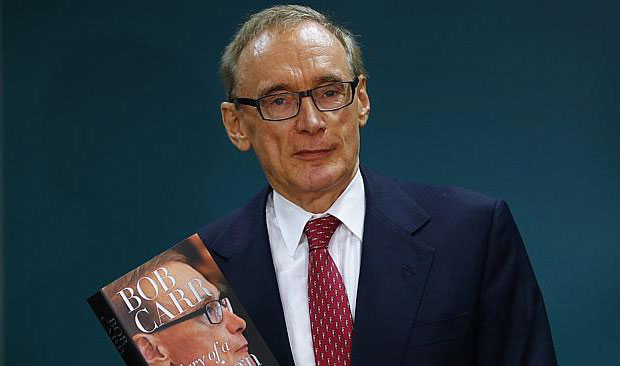Australia/Israel Review
The Last Word: Source-ry
May 27, 2014 | Jeremy Jones

Jeremy Jones
One of the very first assignments given to us Honours students in History at the University of Sydney was to write reviews of former politicians’ autobiographies/diaries.
The skill being taught and tested was understanding the differences between facts and representation of facts, reportage and self-glorification, selective documentation and an overview of relevant information.
The autobiographical works varied in readability and reliability, all suffering from the tendency to make the subject not just the focus of the writing but the centre of the historic events to which they contributed.
Some of the works provided otherwise undocumented accounts of meetings and discussions, others offered insights into the mindsets of political actors, with some seeming to be desperate attempts to write relatively inconsequential figures into leading roles on an imaginary world stage.
Reading the reviews and commentaries of the recent publication by the Foreign Minister in the government which was ejected by voters at the 2013 Federal election, then Senator Bob Carr, I note one common assumption seems to be that the writer was telling the truth, or something close to it, in his accounts of meetings, discussions and processes.
Having been personally present at some discussions recounted in the book, and having spoken to quite a number of parliamentarians and others who feature with varying degrees of prominence, I can state with some confidence that the subjective interpretations of events by the former Senator do not accord with the interpretations of just about everyone else in a position to comment.
Of course, those with counter-interpretations are at a decided disadvantage because they have respected confidences, honoured relationships of trust and put national and collegiate interests above ego and self-glorification.
It is not the sign of a strong intellect to believe that the only reason a person draws a different conclusion to you is because they are under the controlling influence of nefarious forces, and it is not to the author’s credit that he attracted an echo-chamber of bigots and conspiracy theorists who, in earlier times, he would have correctly identified as such.
In future years, the book may well feature in courses analysing the way autobiographical writings represent and misrepresent events, hopefully at a time when there are enough alternate sources of information available to allow students to draw intelligent conclusions.
Another piece which could be the subject of assignments is an item packed with bigotry, false assumptions, intellectual non-sequiturs and facts so selective as to lose all context – perfect for first year students wanting an easy exercise in analysis deconstruction.
Published in Adelaide’s Sunday Mail, “The shame of Israel’s Palestine apartheid” written by ABC Radio broadcaster Peter Goers, might have set a new low standard for political commentary in this country (which many would agree is quite an achievement).
After comparing himself to Jesus in the first paragraph, the author writes as if he has a god-given right to neglect context, historical and contemporary, mix political and sociological metaphors and provide a mishmash of evidence, gossip and simple errors to sustain a thesis that is as weak in its construction as in its foundations.
It contained all the clichés used by far right and far left groups, but even less acknowledgement of reality than is common to people who seek to be persuasive as against simply abusive.
The leitmotif of the piece is Mr. Goers weeping, as he attempts to emotionally manipulate any readers ignorant enough to accept his codswallop.
By contributing to ignorance and rationalising hatred, Mr. Goers provided a reason for sadness beyond the plight of those who suffer while their political future is unresolved – sadness that he either is so ignorant that he believes what he wrote is somehow useful or that he is so hateful that he doesn’t care about the malevolent effect of his writing.
Tags: Australasia






